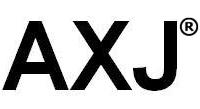Welcome to Actions for Justice ( AXJ ). We provide our Members with the most updated news and information from around the world 24/7/365. Stay Informed! AXJ is a nonprofit organization, and we depend on readers like you to help us do our important work of sharing ideas and knowledge from academia with the public. Your support keeps us going strong. Your Membership and donations will help us reach more people with more research-based journalism. Thank you.
If you have an urgent issue contact us now on: 1 (714 ) 655-0065.
Solana Smart Contract Development Company
Solana is a high-performance blockchain platform designed for decentralized applications and crypto-native assets. It was founded in 2017 by Anatoly Yakovenko, a former Qualcomm engineer, with the aim of building a blockchain platform that could scale to millions of transactions per second. Solana uses a unique consensus algorithm called Proof of History (PoH), which is a combination of Proof of Work (PoW) and Proof of Stake (PoS). The PoH algorithm enables Solana to process a high number of transactions per second, while the PoS consensus mechanism ensures the security of the network. Overall, Solana smart contracts offer developers a powerful and flexible platform for building decentralized applications that can scale to meet the demands of a global user base. With its continued development and expansion, Solana is poised to become a leading platform for smart contract development and decentralized application deployment.
Benefits of Solana Smart Contract Development
High scalability: Solana is designed to process a high volume of transactions per second, making it one of the fastest blockchain platforms available. This scalability is achieved through its unique Proof of History consensus algorithm, which allows Solana to process up to 65,000 transactions per second.
Low transaction fees: Solana’s transaction fees are significantly lower than those of other blockchain platforms, making it an affordable option for developers looking to build decentralized applications and execute smart contracts.
Cross-chain interoperability: Solana is designed to be compatible with other blockchain platforms, making it easy to transfer assets between different networks. This interoperability ensures that Solana can be seamlessly integrated with other blockchain networks, opening up new opportunities for developers to create innovative applications.
Secure smart contract execution: Solana provides a secure environment for executing smart contracts, ensuring that they operate exactly as intended. This security is achieved through its use of a decentralized network and cryptography.
Wide range of development tools: Solana provides developers with a wide range of development tools, including an integrated development environment (IDE), called Solana Studio, a development framework called Anchor, and a command-line interface (CLI) tool called Solana CLI. These tools enable developers to create, test, and deploy smart contracts quickly and easily.
Decentralized applications: Solana is an ideal platform for building decentralized applications (dApps) that require high scalability and low transaction fees. These apps can be used for a wide range of purposes, from finance and gaming to social media and more. Overall, Solana smart contract development offers a range of benefits for developers looking to build fast, secure, and scalable applications. Its unique combination of high scalability, low transaction fees, cross-chain interoperability, secure execution, and a wide range of development tools make it an attractive option for developers looking to create innovative applications on the blockchain.
Solana Smart Contract Development Tools:
Solana Studio: Solana Studio is an integrated development environment (IDE) that enables developers to create, test, and deploy smart contracts on the Solana blockchain.
Anchor: Anchor is a development framework that provides developers with a suite of tools for building decentralized applications on Solana.
Solana CLI: Solana CLI is a command-line interface (CLI) tool that enables developers to interact with the Solana blockchain and deploy smart contracts.
Solana Web3.js: Solana Web3.js is a JavaScript library that provides developers with an easy-to-use interface for interacting with the Solana blockchain.
Implementation of Solana Smart Contracts:
Installing the Solana command-line interface (CLI): The first step in implementing Solana smart contracts is to install the Solana CLI, which provides developers with a range of tools for interacting with the Solana blockchain.
Creating a Solana wallet: Next, developers need to create a Solana wallet to hold their SOL tokens, which are used to pay transaction fees on the Solana blockchain.
Choosing a development tool: Solana offers a range of development tools, including an integrated development environment (IDE), called Solana Studio, a development framework called Anchor, and a command-line interface (CLI) tool called Solana CLI. Developers should choose the tool that best suits their needs.
Writing the smart contract code: Once the development tool has been chosen, developers can begin writing the smart contract code. Solana smart contracts are written in Rust, a systems programming language known for its performance and safety.
Testing the smart contract: After writing the smart contract code, developers should test it thoroughly to ensure that it operates as intended. Solana provides a range of testing tools, including a simulation tool called Solana Simulator, and a testnet called Solana Tour de SOL.
Deploying the smart contract: Once the smart contract has been tested and is functioning correctly, it can be deployed to the Solana mainnet or testnet using the Solana CLI or another deployment tool. Interacting with the smart contract: Finally, developers can interact with the deployed smart contract using a range of tools, including the Solana CLI, Solana Explorer, or custom applications built using the Solana SDK. Overall, implementing Solana smart contracts involves a range of steps, from choosing a development tool and writing the code to testing, deploying, and interacting with the smart contract. However, Solana’s wide range of development tools and testing resources make the process relatively straightforward for experienced developers.
Conclusion:
Solana is a high-performance blockchain platform that provides developers with a scalable and affordable platform to build decentralized applications and smart contracts. Its unique consensus algorithm and low transaction fees make it an attractive option for developers who want to build fast and secure dApps. With a wide range of tools and resources available, Solana smart contract development has become more accessible and easier to implement than ever before.
Frequently Asked Questions
Can you build smart contracts on Solana?
Yes, Solana supports smart contract development using its own programming language, Rust.
What development language does Solana smart contract use?
Solana smart contracts are written in Rust, a systems programming language known for its performance and safety.
How much does it cost to create a smart contract on Solana?
The cost of creating a smart contract on Solana varies depending on the complexity of the contract and the current network congestion. However, Solana’s transaction fees are generally low compared to other blockchain platforms.
How many smart contracts does Solana have?
As of now, we do not have an exact number of smart contracts on Solana since it is a decentralized platform where anyone can create and deploy their own contracts.
What is the size limit of Solana contract?
Solana smart contracts have a size limit of 1 MB.
Book a free business consultation!!
Whatsapp: +91-7339592581
Telegram :SpiegelTech
Mail-id: business@spiegeltechnologies.com
Website -https://lnkd.in/geNPjUbY
GLOBAL VISITS
Sponsors
AXJ NEWS
© 2025 Created by AXJ USA.
Powered by
![]()
Badges | Report an Issue | Privacy Policy | Terms of Service







 BECOME A RESELLER AND MAKE $$$ NOW!
BECOME A RESELLER AND MAKE $$$ NOW!




 <\/a>
<\/a> 

You need to be a member of AXJ to add comments!
Join AXJ